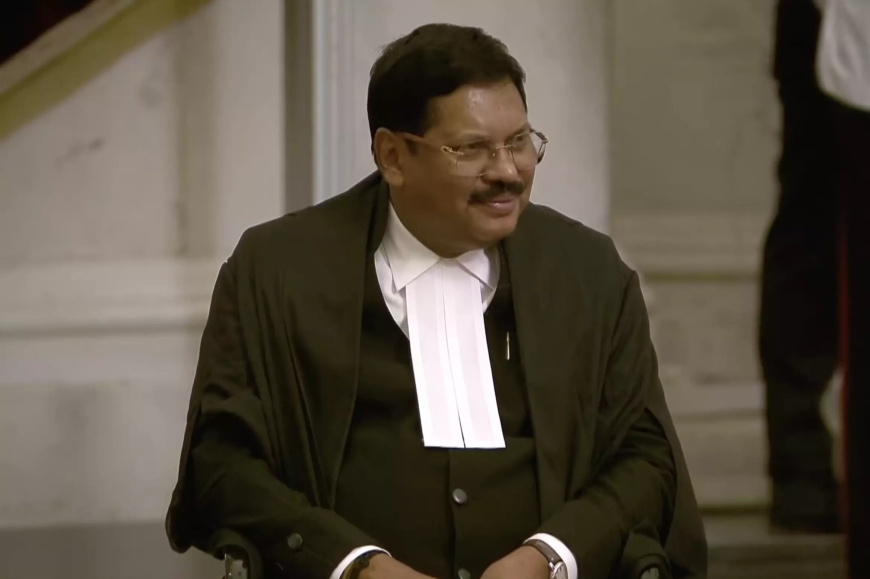Justice BR Gavai Sworn in as the 52nd Chief Justice of India

On May 14, 2025, Justice Bhushan Ramkrishna Gavai was sworn in as the 52nd Chief Justice of India, succeeding Justice Sanjiv Khanna. His appointment marks a historic milestone as the first Buddhist to hold the highest judicial position in the country .
Early Life and Legal Journey
Born on November 24, 1960, in Amravati, Maharashtra, Justice Gavai embarked on his legal career in 1985. He was appointed as a judge of the Bombay High Court in 2003 and served there until 2019, when he was elevated to the Supreme Court of India. Throughout his tenure, Justice Gavai was known for his commitment to social justice and constitutional principles.
Landmark Judgments
Justice Gavai has been associated with several landmark judgments, including:
-
Upholding the abrogation of Article 370, which removed Jammu and Kashmir's special status.
-
Supporting the demonetisation policy implemented by the Indian government in 2016.
-
Declaring the electoral bonds scheme unconstitutional, emphasizing transparency in political funding.
These decisions reflect his deep understanding of constitutional law and his role in shaping key legal precedents in India .
Significance of His Appointment
Justice Gavai's elevation to the position of Chief Justice is significant for several reasons:
-
Representation: He is the first Buddhist to hold the office, highlighting the judiciary's increasing inclusivity.
-
Diversity: He is only the second person from the Scheduled Castes to ascend to this role, following Justice K.G. Balakrishnan.
-
Leadership: His appointment reflects the judiciary's commitment to diversity and representation at the highest levels .
Role and Responsibilities
As Chief Justice, Justice Gavai holds several key responsibilities:
Judicial Leadership
-
Court Sessions: Chairs Supreme Court sessions, particularly those involving constitutional matters.
-
Bench Formation: Determines the composition of benches for significant hearings.
Administrative Authority
-
Judicial Appointments: Influences the selection and transfer of judges within the Supreme Court and High Courts through the collegium system.
-
Court Operations: Oversees case distribution and court scheduling to ensure effective functioning.
Consultative Function
-
Guidance to the President: Provides advice on judicial appointments and constitutional matters.
Judiciary Leadership
-
Representation: Serves as the primary representative of the judiciary in dealings with the executive and legislative branches, safeguarding judicial independence.
Disciplinary Authority
-
Enforcement of Discipline: Possesses the authority to enforce discipline among judges and can initiate removal proceedings when warranted.
PIL Management
-
Public Interest Litigations: Exercises discretion in accepting and conducting hearings for PILs addressing matters of societal concern.
Constitutional Oversight
-
Examination of Government Actions: Maintains the power to examine and invalidate governmental actions or laws that violate constitutional principles.
Crisis Management
-
During Emergencies: Assumes additional responsibilities, particularly regarding judicial operations during national emergencies .
Facts at a Glance
| Aspect | Details |
|---|---|
| Full Name | Justice Bhushan Ramkrishna Gavai |
| Date of Birth | November 24, 1960 |
| Place of Birth | Amravati, Maharashtra |
| Date of Appointment | May 14, 2025 |
| Predecessor | Justice Sanjiv Khanna |
| Tenure as CJI | May 14, 2025 – November 2025 |
| Notable Judgments | Article 370, Demonetisation, Electoral Bonds Scheme |
| Historical Significance | First Buddhist and second Dalit CJI in India |
Financial Entitlements
As Chief Justice, Justice Gavai is entitled to a fixed monthly salary of ₹2,80,000, excluding additional perks and allowances. These benefits are in line with the entitlements of other top constitutional functionaries in India .
Conclusion
Justice BR Gavai's appointment as the Chief Justice of India is a momentous event in the nation's legal history. His elevation not only underscores the judiciary's commitment to diversity and inclusivity but also reflects his exemplary legal acumen and dedication to upholding the Constitution. As he takes on this esteemed role, the legal community and the nation look forward to his leadership in navigating the complex legal landscapes ahead.





























